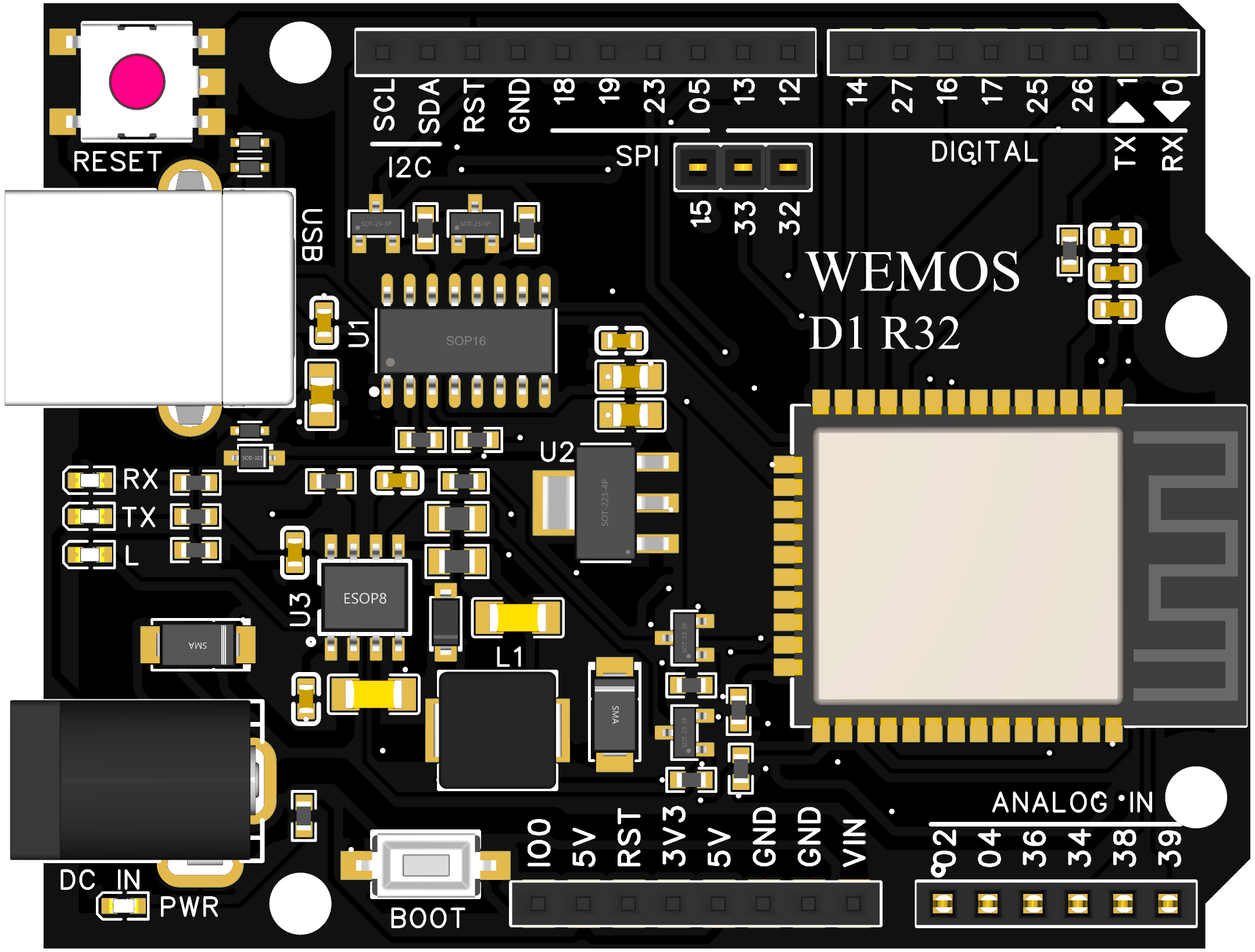
Arduino WeMOS D1 R32
AU$32.00
General Specifications:
Microcontroller: ESP32-WROOM-32
Architecture: Xtensa 32-bit LX6 dual-core processor
Operating Voltage: 3.3V
Input Voltage (recommended): 7-12V
Input Voltage (limits): 6-20V
Digital I/O Pins: 30
Analog Input Pins (ADC): 6 (12-bit resolution)
Analog Output Pins (DAC): 2 (8-bit resolution)
PWM Pins: 16
Flash Memory: 4 MB
SRAM: 520 KB
Clock Speed: 240 MHz
Wi-Fi: 802.11 b/g/n
Bluetooth: Bluetooth v4.2 BR/EDR and BLE
Connectivity:
USB: Micro USB (for power and programming)
Wi-Fi: Integrated 802.11 b/g/n
Bluetooth: Integrated Bluetooth v4.2 (Classic and BLE)
UART: 2 (Hardware Serial Ports)
SPI: 4
I2C: 2
I2S: 2
CAN: 1
I/O Specifications:
GPIO: 34 (Configurable)
ADC Channels: 18
DAC Channels: 2
Touch Sensing Pins: 10
PWM Channels: 16
Capacitive Touch Inputs: 10
Power:
Power Supply: External 6-20V via VIN, USB 5V, or 3.3V pin
Power Consumption: Approx. 160 mA (Operating), Approx. 10 μA (Deep Sleep)
Additional Features:
Built-in LED: 1 (connected to GPIO2)
Reset Button: 1
Boot Mode Selection Button: 1
Dimensions: Approx. 68.6 mm x 53.4 mm
Weight: Approx. 25 g
Pin Mapping:
Digital Pins (D0 - D13): Standard digital I/O
Analog Pins (A0 - A5): Analog input pins with 12-bit resolution
PWM Pins: Any GPIO pin
SPI Pins: GPIO19 (MISO), GPIO23 (MOSI), GPIO18 (SCK), GPIO5 (SS)
I2C Pins: GPIO21 (SDA), GPIO22 (SCL)
UART Pins: GPIO1 (TX0), GPIO3 (RX0), GPIO16 (TX2), GPIO17 (RX2)
DAC Pins: GPIO25, GPIO26
Touch Pins: GPIO2, GPIO4, GPIO12-15, GPIO27, GPIO32, GPIO33
Built-in LED Pin: GPIO2
Programming:
IDE: Arduino IDE, PlatformIO
Supported Languages: Arduino (C/C++), MicroPython, Lua
Other Information:
Operating Temperature Range: -40°C to 85°C
Storage Temperature Range: -65°C to 150°C
Documentation and Support:
Datasheets: Available on official websites and documentation repositories
Community Support: Available through various online forums and communities
Libraries: Extensive libraries available for various peripherals and functionalities
This board is ideal for IoT projects due to its built-in Wi-Fi and Bluetooth capabilities. It can be used in a variety of applications ranging from simple sensor data collection to more complex tasks such as home automation, wearable electronics, and more.
